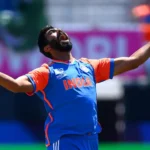When the Indian Premier League (IPL) began in 2008, it wasn’t just a cricket tournament—it was a grand fusion of sport and showbiz. Cricket met Bollywood in a billion-dollar handshake. Among the early enthusiasts from the film industry was none other than Akshay Kumar, one of Bollywood’s biggest action stars. His association with the Delhi Daredevils (now known as Delhi Capitals) turned heads and generated immense buzz. However, this unexpected alliance didn’t last long. Fans have often wondered: Why did Akshay Kumar leave Delhi Daredevils?
The answer lies in a fascinating mix of business disagreements, creative differences, and a changing vision for the team’s future. This article explores the reasons behind Akshay Kumar’s departure from Delhi Daredevils and how it impacted the IPL’s evolution as a cricketainment spectacle.
A Star Enters the Stadium
In 2008, the inaugural IPL season was launched with fanfare, and every team was looking to build a brand beyond cricket. The idea was simple—merge India’s two biggest passions: Bollywood and cricket. Shah Rukh Khan picked Kolkata Knight Riders, Preity Zinta went with Kings XI Punjab, and Shilpa Shetty later joined Rajasthan Royals. Akshay Kumar was roped in to promote the Delhi Daredevils.
Although he was not an official co-owner like some of his Bollywood peers, Akshay was a brand ambassador and a strategic celebrity face associated with the franchise. The idea was to bring energy, visibility, and fan engagement to Delhi’s team, leveraging Akshay’s immense popularity.
From performing at opening ceremonies to cheering in the stands and promoting merchandise, Akshay was actively involved. His sporty, fitness-forward image was seen as a perfect match for the youthful, aggressive branding of the Delhi Daredevils.
The Disconnect: A Clash of Visions
Despite the initial excitement, the partnership quickly began to show cracks.
- Lack of Ownership Stake:
Unlike Shah Rukh Khan and Preity Zinta, Akshay did not hold an ownership stake in the Delhi Daredevils. His involvement was primarily promotional, and as a result, he didn’t have much say in how the team operated or was marketed. According to sources close to the situation, Akshay expected a deeper involvement—both creatively and financially—but the franchise maintained a hands-off approach, treating him more like a brand face than a strategic partner. - Creative Differences in Branding:
Akshay’s team reportedly had ideas about rebranding the Delhi franchise with more aggressive marketing and merchandise strategies. However, the team’s management, led by the GMR Group at the time, preferred a more traditional approach. The clash between Bollywood-style flamboyance and corporate conservatism made collaboration difficult. - Time Commitment & Conflicting Schedules:
Akshay Kumar is known for his disciplined routine and busy filming schedules. Balancing multiple film shoots with IPL appearances became increasingly difficult. In 2008 and 2009, he was shooting back-to-back films including Singh is Kinng, Chandni Chowk to China, and Kambakkht Ishq. Maintaining a consistent presence at matches or promotional events proved to be a logistical challenge.
The Fallout: Quiet Exit, No Formal Goodbye
Unlike some messy celebrity splits, Akshay’s departure from Delhi Daredevils was low-key. There was no press conference, no official announcement. His absence in the 2009 and 2010 seasons was quietly noted by fans and commentators.
Insiders suggest the split was amicable but inevitable. Akshay, known for being pragmatic and professional, simply decided to step back when it became clear the partnership wasn’t yielding the influence or alignment he had hoped for.
Was It a Missed Opportunity?
Hindsight often offers clarity, and in this case, many believe Akshay’s exit was a missed opportunity for both parties.
For Delhi Daredevils:
The team struggled with brand identity for years. While franchises like KKR and CSK cultivated cult-like fanbases—helped in part by their celebrity owners—Delhi seemed stuck in limbo. A long-term association with a star like Akshay could have strengthened fan loyalty and brand recall, especially among North Indian youth.
For Akshay Kumar:
Had he stayed or pushed for equity, he could have become a long-term face of the franchise, similar to what Shah Rukh Khan did with KKR. Given the IPL’s current valuation in billions, early stakes in a team could have translated into a highly profitable investment.
The Bigger Picture: Bollywood & IPL
Akshay’s exit also highlights a broader truth about Bollywood’s involvement in IPL—celebrity associations only work when they are deeply integrated. The most successful examples are those where stars are emotionally and financially invested in the team, not just serving as promotional mascots.
Shah Rukh Khan didn’t just show up for games—he was involved in the team’s branding, recruitment, and fan engagement. His partnership with Juhi Chawla and Jay Mehta allowed him to shape KKR’s ethos. Similarly, Preity Zinta was often seen directly involved in Kings XI Punjab’s strategic decisions.
Akshay’s comparatively surface-level role meant that once the initial novelty wore off, there was little incentive for him to remain.
Moving On: What Came After
Post his exit, Akshay Kumar continued to support cricket initiatives in India, but mostly from the periphery. He occasionally attended matches as a fan and once expressed interest in promoting sports leagues like kabaddi and hockey.
Interestingly, his interest in sport as a tool for youth development grew stronger, leading to philanthropic efforts in martial arts and self-defense programs for women. He also remained connected to fitness advocacy, launching campaigns and speaking at events about youth sports infrastructure.
As for Delhi Daredevils, they eventually rebranded as Delhi Capitals in 2019 under new management by the JSW Group. The franchise saw a resurgence in performance and branding, finally making it to the IPL finals in 2020. By then, however, the team’s association with any Bollywood personality had long ended.
Conclusion: A Star Who Walked Away
Akshay Kumar’s short-lived journey with Delhi Daredevils remains a curious chapter in IPL’s history—a flash of stardom that fizzled out before it could take root. His departure was not scandalous or dramatic, but it reflected the challenges of blending celebrity glamour with corporate sports culture.
Today, with the IPL more commercialized and structured than ever, celebrity associations are either full-scale ownerships or highly curated partnerships. Akshay’s early involvement remains an example of how even the brightest stars can struggle to shine in a space that demands more than just fame—it requires commitment, alignment, and a shared vision.In the ever-evolving saga of IPL, some partnerships make history. Others, like Akshay’s with Delhi Daredevils, simply become part of the forgotten Diaries.









